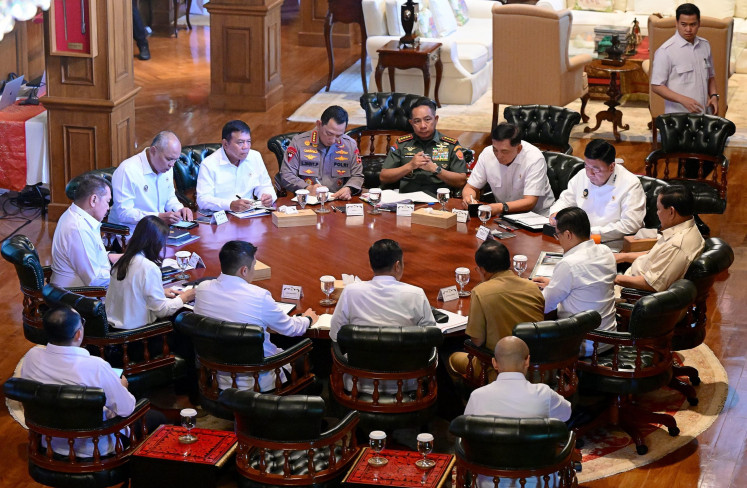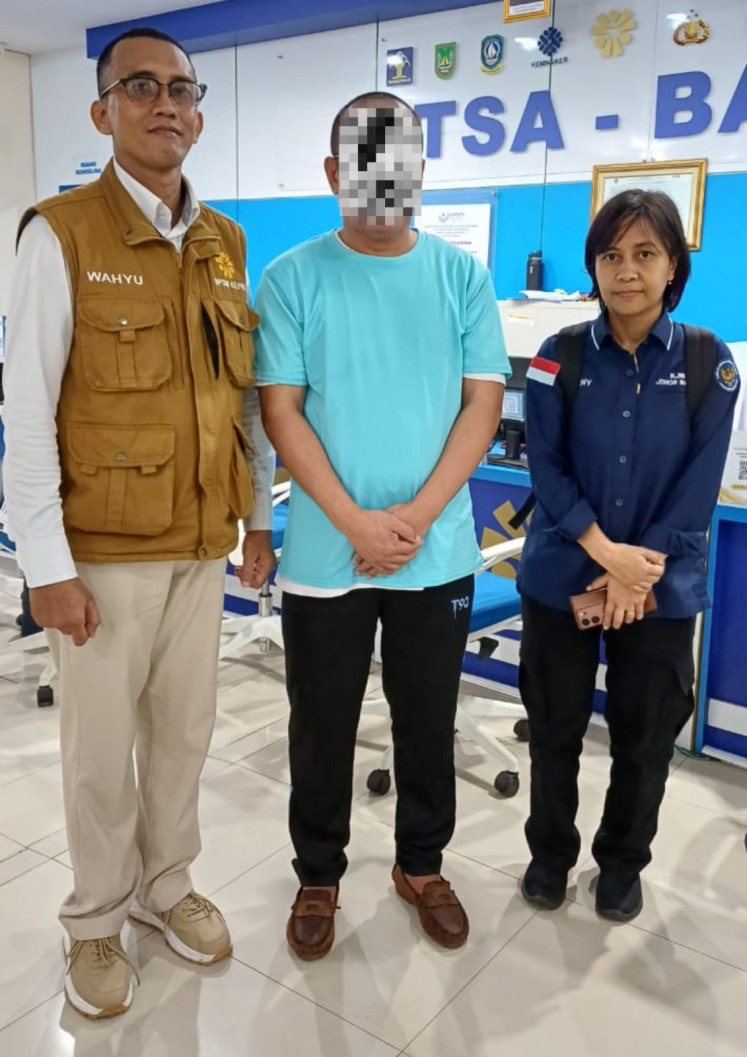Popular Reads
Top Results
Can't find what you're looking for?
View all search resultsPopular Reads
Top Results
Can't find what you're looking for?
View all search resultsImplementation of UN convention on torture remains stagnant: Komnas Perempuan
Excessive use of force during arrests is among the contributors to the persistence of torture and abusive practices, Komnas Perempuan deputy chairwoman Mariana Amiruddin said.
Change text size
Gift Premium Articles
to Anyone
T
he National Commission on Violence Against Women (Komnas Perempuan) says efforts to implement the Convention against Torture and Other Cruel, Inhumane or Degrading Treatment or Punishment remain stagnant to this day.
“It feels as though we are stuck in place, still facing the same issues,” said Komnas Perempuan deputy chairwoman Mariana Amiruddin, as quoted by Antara news agency.
Mariana delivered a jointly prepared report in a webinar titled "Unpacking the Stagnation: 25 Years of Implementing the Convention Against Torture and Other Cruel, Inhuman or Degrading Treatment or Punishment in Indonesia" in Jakarta on Tuesday.
The convention was signed on Feb. 4, 1985, and became effective on June 26, 1987, after receiving 20 ratifications. June 26 is now recognized as the International Day in Support of Victims of Torture.
Indonesia signed the convention on Oct. 23, 1985, but only ratified it 13 years later on Oct. 28, 1998.
The report was drafted through the work of six independent institutions in Indonesia under the banner of the Cooperation for the Prevention of Torture (KuPP), comprising the National Commission on Human Rights (Komnas HAM), the Indonesian Child Protection Commission (KPAI), the Indonesian Ombudsman (ORI), the Witness and Victim Protection Agency (LPSK), the National Commission on Disabilities (KND) and Komnas Perempuan.
Mariana highlighted several issues that contribute to the persistence of torture and abusive practices, including the excessive use of force during arrests.
"Reliance on confessions as primary evidence and challenges in limiting military authority, particularly in armed conflict situations, remain major obstacles to preventing recurring acts of torture," Mariana said.
She added that efforts to end impunity remain weak, while initiatives to support victim recovery have also stalled.
The second issue is the lack of systematic and effective oversight, which allows torture and abusive practices to persist in facilities such as psychiatric institutions, orphanages and drug rehabilitation centers.
The third issue is the prevalence of militaristic approaches, where violence and a desire for revenge remain deeply ingrained in societal norms.
For instance, the abolition of the death penalty and chemical castration remains a challenge. Similarly, practices like public shaming and other forms of mob punishment, such as caning in Aceh, continue to persist.
Another issue is the lack of a gender-sensitive perspective among law enforcement officers. This has led to the mistreatment of victims in various gender-based violence cases, such as domestic violence, sexual abuse and human trafficking.
In recent years, through the KuPP team, Komnas Perempuan has received reports and testimonies from torture victims within correctional facilities, refugee centers and other similar institutions.
"Problems found in prisons often stem from budget issues, leading to insufficient provisions such as food, clean water, or even basic reproductive health needs for women, along with other rights. These are the most common issues we have encountered," Mariana said, as quoted by elshinta.com.
She added that other issues included mistreatment or abuses during the arrest process, such as arrests made without warrants and the lack of legal assistance during interrogations despite the presumption of innocence.











